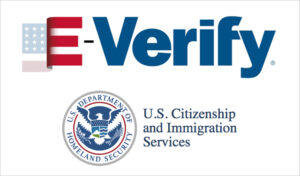New immigration bill threatens undocumented, international students

On Oct. 25, Tampa Bay area state senators Tom Lee (R-Thonotosassa) and Joe Gruters (R-Sarasota) introduced legislation that would mandate all employers check prospective employees’ immigration status, per the website Florida Politics. Gov. Ron DeSantis signaled his support for the bill four days later, effectively placing it at the top of the state’s agenda.
Under Senate bill (SB) 664, employers would be required to use a system called E-Verify, a database operated by the U.S. Department of Homeland Security (DHS). E-Verify tries to check new hires’ immigration status by comparing employee documents — like Social Security numbers — to records from federal agencies.
Most punitively, businesses that fail to use E-Verify would be reported to U.S. Immigration and Customs Enforcement (ICE) by the state government, potentially leading to raids and arrests of undocumented workers.
As a result, SB 664 puts thousands of Floridians at risk, including USF students.
For undocumented USF students, the impact of the bill would be immediate and effectively cut off their access to work. More broadly, the threat of immigration enforcement could create a chilling effect, making undocumented students afraid to apply for new jobs for fear of being reported to ICE.
Even immigrant students with legal status, as well as international students, could be denied work under the legislation.
Both the National Immigration Law Center and the American Civil Liberties Union warn that faults in E-Verify databases could lead to many U.S. citizens, lawful permanent residents and visa holders being falsely labeled as unauthorized to work.
A 2015 analysis by the CATO Institute, a libertarian think tank, confirmed these fears: 2 percent of lawful permanent residents and visa holders entered into the E-Verify system were incorrectly flagged, which can take a lengthy appeals process to overturn. 2 percent might seem small, but considering Florida’s large immigrant population, that could easily translate to thousands of false positives.
If this rate were applied to USF’s 4,800 international students, for instance, over 90 such students could be affected.
SB 664 would add needless fear and frustration to thousands of Floridians’ lives. USF leaders should stand with undocumented, immigrant, and international students by publicly opposing E-Verify in Florida.
Nathaniel Sweet is a senior majoring in political science.







